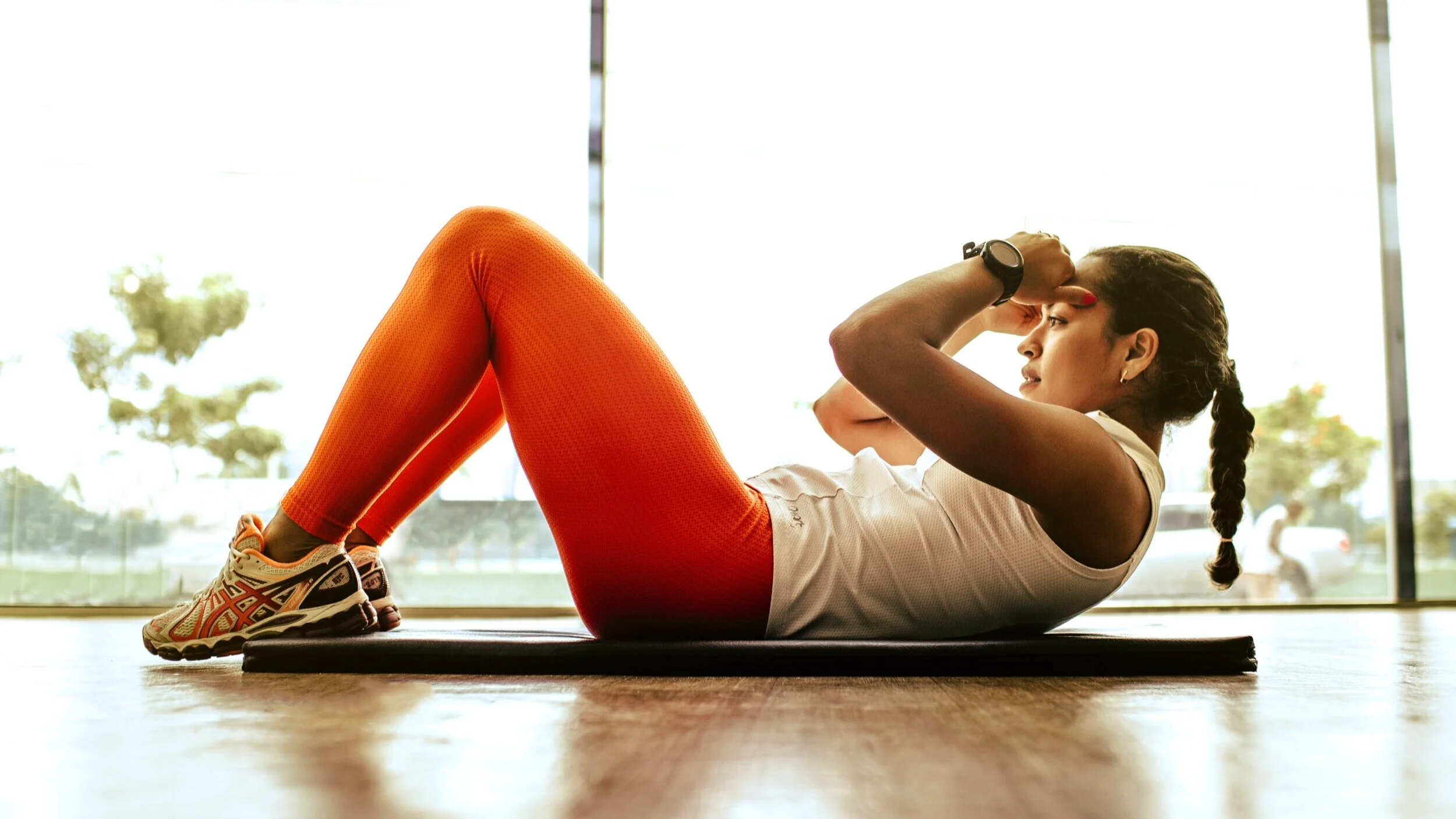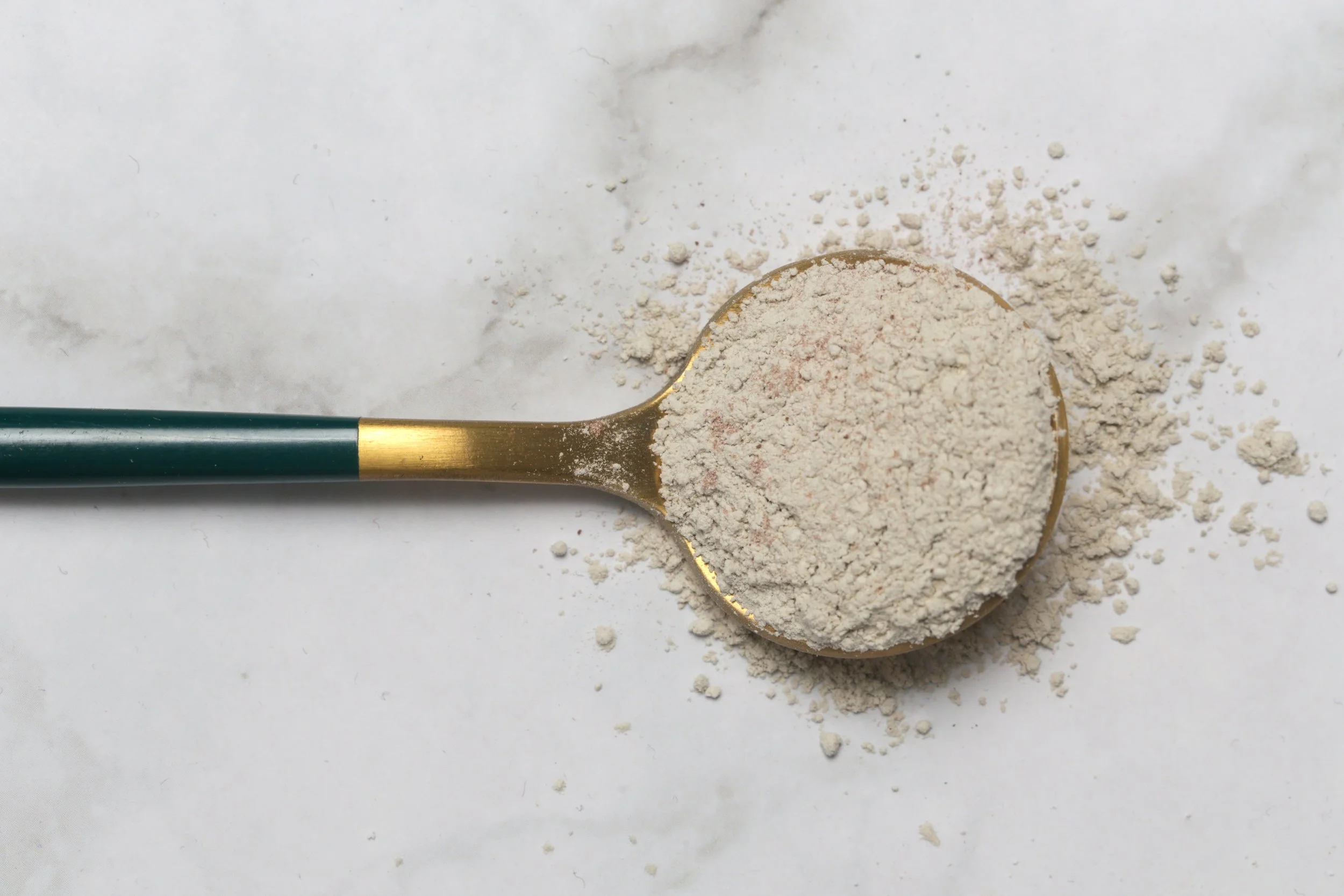Pre- and Post-Workout Nutrition
“Exercise is king. Nutrition is queen. Put them together and you’ve got a kingdom.”
As a former sports nutritionist, working with elite athletes taught me that whether you're training for your next PR, or you simply move your body to feel good in it, your nutrition is key for bulletproof results and feeling great all the way through. So whether your focus is getting in shape, taking your favorite sport to the next level, or simply wanting to greet each day with more energy, the nutrients you fuel your cells with before, during and after exercise is the master key to unlocking your body’s potential.
But in the past at one point or another, you’ve probably felt the consequences of exercising without the right fuel. Maybe you were completely drained of energy afterward, battled a grueling headache, or you came face to face with the bottom of a chip bag thanks to an insatiable appetite. These are the standard byproducts of moving your body without offering it the nourishment it needs to get the job done well.
Contrarily, when your body receives the right nutrition at the right time, you get better results with greater ease. No brainer, right? It’s what I like to call working out smarter, not harder. Your nutrition is the key to enhanced results and recovery from oxidative stress and inflammation. In fact, your food choices can account for up to 50% of your total results from your workout, and 80% of your recovery.
Your food choices can account for up to 50% of your total results from your workout, and 80% of your recovery.
Let’s start with the four cornerstones of exercise nutrition:
[1] FLUIDS
Dehydration is the number one source of decreased performance in trained athletes. In fact, just a 2% loss of fluids can lead to a 10% loss in strength and an 8% loss in speed. Because dehydration can compromise performance so significantly, strive to hydrate before, during, and after exercise. Drinking 4-8 oz. of cool liquids every 15-30 minutes during exercise is recommended to regulate body temperature and prevent dehydration and muscle tightness.
*A side note on caffeine: A boost of caffeine has been shown to heighten endurance and alter the perception of exercise intensity. While for some, coffee can acidify the body, hinder hormone balance and even kick anxiety into overdrive, L-theanine, found almost exclusively in tea is coveted for its effects on mental performance and focus. The combination of l-theanine and caffeine, such a green or black tea, has been shown to improve both cognitive focus and attention, while helping to maintain alkalinity and reduce the strain on stress hormones.
[2] ELECTROLYTES
Hydration is key, but proper balance of electrolytes to water is even more critical for energy and athletic recovery. Electrolytes are minerals that control fluid balance, blood volume, heart rate, and body temperature, and there are six essential electrolytes, and they’re all needed in proper balance to equalize your body: sodium, calcium, potassium, chloride, phosphate, and magnesium. Unfortunately, popular brands like Gatorade only contain four of the six electrolytes, leaving your body lacking the support it needs to rehydrate properly. Coconut water is an excellent source of electrolyte-charged hydration. Not a fan of coconut water? This electrolyte powder passes our test for balance, quality, and taste and most importantly, allows your body to function optimally before, during, and long after your sweat session.
[3] CARBOHYDRATES
Carbohydrates are the body’s main source of energy and hardworking muscles need them. The harder and longer you work out, the more your body needs to replenish carbohydrates in order to replace the loss of glycogen (energy), restore your blood sugar levels, and stimulate muscle synthesis. This is the most efficient way to reduce post-workout fatigue and avoid an insatiable appetite later on.
[4] PROTEIN
Protein is important for building and maintaining muscle and for muscle recovery. Consuming high quality, easy-to-digest protein to helps to repair and build new muscle in response to exercise. Contrary to popular belief, extremely high intakes of protein are not necessary to increase muscle growth or performance and might be one of the biggest sports nutrition mistakes I see people make. We can only absorb up to 30 grams of protein at a time, so mega dosing more than that in one serving will only burden the kidneys before getting peed out. Not ideal for your body… or wallet.
Here’s how you can put them into action…
PRE-WORKOUT
When: 15-30 minutes before a workout
Eating the right pre-workout foods will maximize your energy output and performance. These foods should be high in energy-producing carbohydrates, moderate in protein, low in fat, and familiar to you. It’s best to have a small serving 15-30 minutes before a workout. Here are some ideas:
Fruit (banana, orange, dates, etc.)
Crackers and peanut butter
Oatmeal with berries
If you’ve eaten a more substantial meal about an hour or so before your workout, chances are you can get away without a pre-workout snack (unless muscle building is your goal or you’re engaging in endurance/high intensity work)
DURING WORKOUT
When: only if over one hour, every 60 minutes
Research supports the benefits of carbohydrate consumption for endurance workouts lasting more than 60 minutes. If carbohydrate foods are consumed during prolonged endurance activity, they should be low in fat and protein to minimize digestive distress. Foods such as bananas, dates, raisins, and other snacks may be consumed in small amounts approximately every 60 minutes in addition to fluids during workouts lasting over one hour.
*Add electrolytes to your water when exercising for over one hour, or in hot or humid temperatures.
POST-WORKOUT
When: Immediately after, or within 30 minutes
What you eat after your workout can be just as important as the workout itself. Ideally, it should include sources of both protein and carbohydrates and be consumed immediately after exercise (no more than 30 minutes after) to trigger the anabolic recovery state. This will help to ease inflammation and soreness and maximize muscle synthesis. In general, here are some ideas for what post-workout nutrition could look like:
Protein shake — try this Blueberry Ginger Smoothie.
Greek yogurt with berries.
Oatmeal with protein mixed in.
Half tuna or chicken salad wrap.
A wholesome meal like a sweet potato, vegetable, and a protein of your choice.
Keep in mind these are general guidelines. Just as your pre-workout nutrition is determined by your goal (i.e. muscle building, maintenance, or general health), your post-workout nutrition will also differ. Everyone needs a little something different based on their unique body and activity level, duration, intensity, and environmental conditions.











